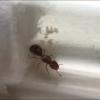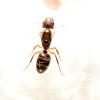- Formiculture.com
- Forums
- Gallery
- Members
- Member Map
- Chat

31 replies to this topic
#21
 Offline
-
Posted October 17 2017 - 12:19 PM
Offline
-
Posted October 17 2017 - 12:19 PM
For folks with a spare mini fridge they want to repurpose, I have a thread on modifying one to get higher temps.
#22
 Offline
-
Posted October 17 2017 - 12:46 PM
Offline
-
Posted October 17 2017 - 12:46 PM
For folks with a spare mini fridge they want to repurpose, I have a thread on modifying one to get higher temps.
could you share the url?
#23
 Offline
-
Posted October 19 2017 - 3:20 PM
Offline
-
Posted October 19 2017 - 3:20 PM
#24
 Offline
-
Posted October 20 2017 - 1:13 AM
Offline
-
Posted October 20 2017 - 1:13 AM
I have a small Crematogster colony of about 10 workers. I live in Israel, should i hibernate them? is the temps and times different here? winter here barely reaches 8C in the coldest area in the coldest times.
Edited by ZohMyGod, October 20 2017 - 1:23 AM.
#25
 Offline
-
Posted October 21 2017 - 6:35 PM
Offline
-
Posted October 21 2017 - 6:35 PM
Err, a bit late?
They don't hibernate. Most warm-climate species never even go through any sort of diapause.
Does that go for all Myrmecocystus mexicanus across their entire range? Would colonies caught in CO, for example, need to be hibernated? I know they have some hellacious winters some years.
#26
 Offline
-
Posted November 1 2017 - 5:17 PM
Offline
-
Posted November 1 2017 - 5:17 PM
I want to put my camponotus pennslyvanicus into hibernation, but she has a pile of larvae and pupae. I read that you can hibernate them regardless of what stage the brood is in, but then I also read that you should allow the pupae to hatch or they will die during hibernation. Should I hold off until the pupae hatch?
#27
 Offline
-
Posted November 2 2017 - 11:06 AM
Offline
-
Posted November 2 2017 - 11:06 AM
I want to put my camponotus pennslyvanicus into hibernation, but she has a pile of larvae and pupae. I read that you can hibernate them regardless of what stage the brood is in, but then I also read that you should allow the pupae to hatch or they will die during hibernation. Should I hold off until the pupae hatch?
Yeah, I would wait until the workers eclose.
#28
 Offline
-
Posted November 19 2017 - 5:54 PM
Offline
-
Posted November 19 2017 - 5:54 PM
Yeah, I would wait until the workers eclose.
I want to put my camponotus pennslyvanicus into hibernation, but she has a pile of larvae and pupae. I read that you can hibernate them regardless of what stage the brood is in, but then I also read that you should allow the pupae to hatch or they will die during hibernation. Should I hold off until the pupae hatch?
So I've been waiting for the pupae to hatch, which it did, but while I was waiting five more turned into pupae. Should I just keep these (C. Pennsylvanicus) out of hibernation this winter? There's still a lot of larvae that is growing and will pupate in the next week or two. There's larvae in all stages of development so the cocoons won't stop for several weeks, let alone the time it will take for them to hatch.
Another issue that I need some advice on is my L. Latipes colony. My L. Latipes queen has a large pile of brood, roughly half and half eggs/larvae. Would it harm the brood (I know the adult host colony will be fine) to hibernate the colony right now at temps above freezing (40*F-50*F)? Development on them is crawling at a snails pace. It's taking almost 3x as long for them to develop than it should. I'm torn on leaving them on a warm shelf to develop and skip hibernation, or to hibernate them for the winter.
Thanks in advance!
#29
 Offline
-
Posted November 19 2017 - 5:56 PM
Offline
-
Posted November 19 2017 - 5:56 PM
Ants who aren't Formica go into hibernation with their brood. The rumor that you need to wait for brood to eclose is false. You will likely find that the larvae will reach a certain size only to stop developing entirely.
Edited by Batspiderfish, November 19 2017 - 5:56 PM.
If you've enjoyed using my expertise and identifications, please do not create undue ecological risk by releasing your ants. The environment which we keep our pet insects is alien and oftentimes unsanitary, so ensure that wild populations stay safe by giving your ants the best care you can manage for the rest of their lives, as we must do with any other pet.
Exotic ants are for those who think that vibrant diversity is something you need to pay money to see. It is illegal to transport live ants across state lines.
----
Black lives still matter.
#30
 Offline
-
Posted November 22 2017 - 6:54 AM
Offline
-
Posted November 22 2017 - 6:54 AM
I have a question regarding temperatures.
I can't seem to find a location within my house where I can get within the required temperature range say at least 10 deg. celsius or lower. What happens if I keep them at say 15 degrees? Will that mean they actually don't go into hibernation mode and just remain cold? Is that better or worse than not hibernating them at all?
I do have a garage that may be OK at the moment (still have to check exact current temperatures) but I know it will get way too cold in the next month or so. Should I put them there now so they can get into hibernation and then move them back in to higher temperature the rest of the winter?
I can't seem to find a location within my house where I can get within the required temperature range say at least 10 deg. celsius or lower. What happens if I keep them at say 15 degrees? Will that mean they actually don't go into hibernation mode and just remain cold? Is that better or worse than not hibernating them at all?
I do have a garage that may be OK at the moment (still have to check exact current temperatures) but I know it will get way too cold in the next month or so. Should I put them there now so they can get into hibernation and then move them back in to higher temperature the rest of the winter?
My online ant spreadsheet
#31
 Offline
-
Posted October 7 2018 - 6:34 PM
Offline
-
Posted October 7 2018 - 6:34 PM
Did I read Canadian anter's post right? Tetramorium don't like hibernation. Should I not hibernate them?
#32
 Offline
-
Posted October 9 2018 - 8:19 AM
Offline
-
Posted October 9 2018 - 8:19 AM
Did I read Canadian anter's post right? Tetramorium don't like hibernation. Should I not hibernate them?
I hibernate my ants from November 01 - April 01. The same hibernation schedule as my car which corresponds to winter in southern Ontario.
I have a tetramorium colony which went from 40 workers last year to about 2k workers this year. I basicly had to switch their nest twice in one summer. That’s after a full 5 month hibernation. You should hibernate all ants that come from temperate regions as that is what they would do in their natural environments.
Also tagged with one or more of these keywords: hibernation
Ant Keeping →
General Ant Keeping →
Are my ants ok?Started by mrrhostar , Mar 12 2025 |
|

|
||
Ant Keeping →
General Ant Keeping →
Take the ants out of hibernation? Canada B.CStarted by Stubyvast , Feb 17 2025 |
|

|
||
Ants & Myrmecology →
General →
Time to hibernate tetramorium? (Solved)Started by Stubyvast , Sep 12 2024 |
|

|
||
Ant Keeping →
General Ant Keeping →
Problems with hibernationStarted by GeoAnts , Feb 1 2023 |
|

|
||
Ant Keeping →
General Ant Keeping →
Problems with hibernationStarted by GeoAnts , Feb 1 2023 |
|

|
1 user(s) are reading this topic
0 members, 1 guests, 0 anonymous users















